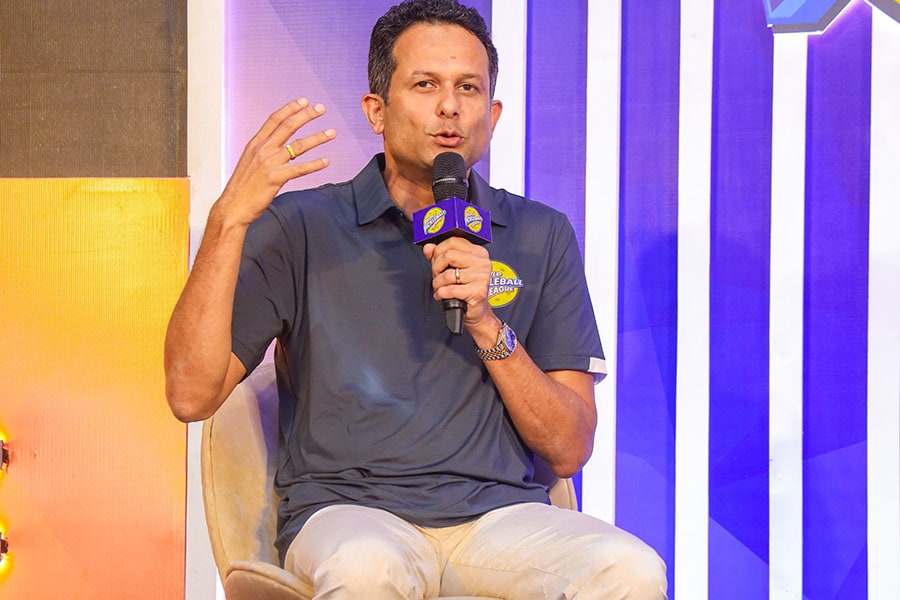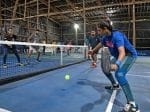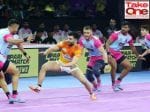Corporates and HNIs have given a push to pickleball: Gaurav Natekar
Natekar, founder and CEO of the freshly minted World Pickleball League, on the rapid spread of the sport, and how it's now going beyond metros
 Gaurav Natekar, Founder and CEO of the World Pickleball League
Gaurav Natekar, Founder and CEO of the World Pickleball League
His father, Nandu Natekar, was one of India's earliest badminton heroes, and he himself has represented India in tennis. But Gaurav Natekar, Arjuna awardee and a double Asian Games gold medallist, has now picked up a sport that is neither of these—at best, a cross between the two. Through Natekar Sports and Gaming, which he owns and promotes, the former India No 1 is set to launch the World Pickleball League—his company will invest $10 million over the next three to five years in India and APAC countries. While the sport is gathering steam across the world, especially in the US, it remains nascent in India. Will Natekar manage to turn the tide? In an episode of Sports UnLtd, he tells Forbes India why he took the bet. Edited excerpts:
Q. You are the son of one of India 's most well-known badminton players and you were an accomplished tennis player yourself. What drove you to pickleball?
I have another business called Natekar Sports and Fitness, which builds sports infrastructure across the country and through which we work with brands who want to enter the sporting ecosystem. About eight to 10 months ago, my team started coming to me with a lot of enquiries from people and organisations that wanted to build pickleball courts. That's when I realised that if there were so many courts being built, there had to be something in that sport. After that, my company had sponsored a national ranking tournament in Goa and when I went there for the finals, I realised there is definitely something more to this than what meets the eye.
Q. Does pickleball have enough traction in India for the audiences to lap up a league?
It's already gaining a lot of traction. From a few courts here and there, I know that, over the next 12 to 15 months, there will be at least a thousand courts that are going to be built. There's a whole bunch of players now that are playing; especially in Mumbai, slots are booked for weeks. In the US, there are over 40 million players.
There's a lot of interest in India primarily for three reasons. Because as Indians, we've always had good hand-eye coordination. And because the area is so small—it's only 1,800 sq ft—building a pickleball court is not that tough. The investment for building a pickleball court is very, very low. These are the triggers that, I believe, are going to make it a very big sport in India.
Q. The league is titled World Pickleball League. How do you plan to make it a global product?
Natekar Sports and Gaming has a significant strategic investment from Sony Entertainment Talent Ventures India (SETVI), a 50:50 joint venture between Sony Pictures and Sony Music. That itself makes it international.
Our format is such that we are looking at six franchisees in Year 1. We're looking at eight players per team, of which ideally we'd like five or six to be international. So, a couple of them from Europe/US, three or four from Asia, and at least two players from India. We are also ensuring that each of the franchisees has top juniors from that particular state or city who will be with the team and train with the team, so they get an idea of what’s needed to make it big in pickleball.
Also read: The ultimate aim is to take pickleball to the Olympics: Arvind Prabhoo
Q. What's the pickleball scenario in India? How many registered players do we have?
Getting data in any sport in India has always been a big challenge; more so with a new sport like pickleball. While I can't give exact data points, I can tell you that until last year there were about 15,000 registered players in India. That's gone up by 20 to 25 percent and I expect that figure to reach at least 100,000 players in the next 18 to 24 months. Courts are mushrooming all over the country. A lot of high net worth individuals [HNIs] and big corporate houses are building courts for their employees. This is the only sport that has 40 percent women participation, and one of my targets for the league is to have at least two women owners out of the six teams.
Q. What sort of interest have you gauged in terms of sponsorship?
There is still some time for the league. We're looking at the first season to take place in February 2025. But based on whoever I have spoken to in the industry, in the corporate world, in the brands world, this sport and league are maturing and getting primed. So, while raising sponsorship for any sport outside of cricket in India is always a challenge, I believe we have a stronger chance with this game because of the various facets that are attached to it.
Q. In India, a lot of interest in sports is geographical. Like, football in West Bengal and Kerala, north India for combat sports. Is there a geographical pattern for pickleball?
Currently it's an urban phenomenon simply because it's a combination of corporates and HNIs, and those who have properties like farmhouses, that are building courts. But that's changing very fast. Twelve months ago, pickleball was considered to be a sport that was played by people above 40 or 45. We now have Indian kids who are winning gold medals at Asian championships. So, geographically, if you ask me, yes, today it is essentially an urban phenomenon. But there are courts coming up in places like Jharkhand, in Raipur, in Coimbatore, in Surat. So, while today it’s a domain of corporates and urban populations, it’s quickly moving to tier 2 cities.
Q. India has a number of sports leagues. Why do you think a pickleball league will succeed in such a crowded ecosystem? And what have been your takeaways from successful leagues like the IPL?
There are two or three things that we want to do differently. The first and foremost is that while pickleball is the sport for the league, we're looking at this as location-based entertainment. So, we are looking at getting a lot of content-led creatives. Four or five out of our six owners will be highly successful individuals or companies, be it in the corporate world or entertainment or sports. We are focusing on content and bringing the surround sound of a company like Sony, whether it's music, gaming, or movies.
Q. How are you going to draw from your long and illustrious career as an international athlete?
Unfortunately, in most sports, the athlete or player is the last in terms of the respect they get. And it's no different in the world of pickleball. That's one thing I want to change. So, whenever we are talking to the players and their agents, we make it very clear that there will be no distinction in the way players travel, how they are taken care of, their interaction with media, etc. We are not going to treat them any differently from others. Obviously, what they get paid for the league will depend on demand and supply, on how good a player is; the market dynamics will determine that. But, as a former player, I want to ensure that the franchises and the players are happy. Any league succeeds first because of the players and the franchises and then all the other things around it.
Q. What are your immediate and long-term goals for the league?
The immediate goal, of course, is to get the best franchisees. By this I mean people who understand the sport and understand my vision. My long-term vision is really to ensure the league is commercially successful. And then, of course, along with that to ensure the game of pickleball grows not only in India but also in Asia.


















